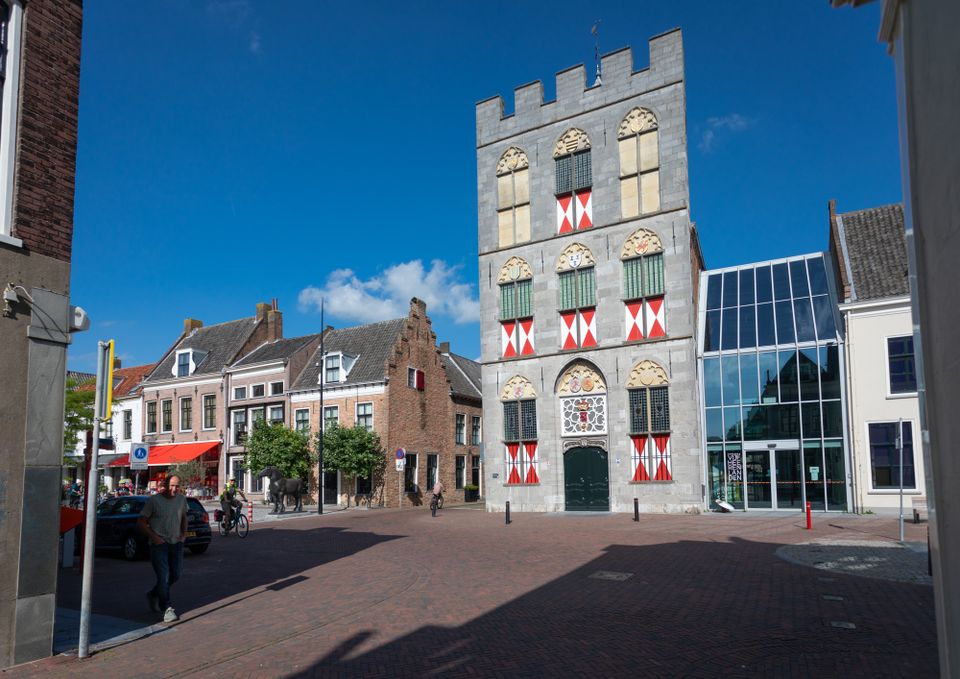In the year 1335 and 1336, Heilwich van Vianen and her husband Willem van Duivenvoorde granted Vianen a variety of town rights. Despite these rights, the Lords of Vianen remained the highest rulers in the area for centuries. Their will was often literally law. In the early 15th Century, the citizens of Vianen gradually gained increasing political control. These freedoms were further enhanced by the construction of the town hall, also known as the ‘raethuys’.
Originally, the town hall consisted of a spacious hall, the civic hal…
In the year 1335 and 1336, Heilwich van Vianen and her husband Willem van Duivenvoorde granted Vianen a variety of town rights. Despite these rights, the Lords of Vianen remained the highest rulers in the area for centuries. Their will was often literally law. In the early 15th Century, the citizens of Vianen gradually gained increasing political control. These freedoms were further enhanced by the construction of the town hall, also known as the ‘raethuys’.
Originally, the town hall consisted of a spacious hall, the civic hall, which was also used as a market hall, with a smaller space at the rear of the building. From this smaller space, the town was governed and justice was administered. In a major renovation in the year 1473, the town hall was given its current floor plan: a deep two-storey building with a Namur stone façade. The tower was given an entrance door in the 17th Century. One century later, the town hall had fallen into a very bad condition and the town council decided to make emergency repairs. During this renovation, the entrance door to the civic hall was installed and the town’s coat of arms with the saying “audi alteram partem” (hear the other party) was probably installed. The building was thoroughly restored again between 1981 and 1984. Early in this century, the town hall was renovated and the old building was combined with a modern, open design.
Further reading: Vianen Castle, The horse, Town wall and town canal, Brederode statue, Guesthouse chapel, Former cantonal court/Anduspand.

